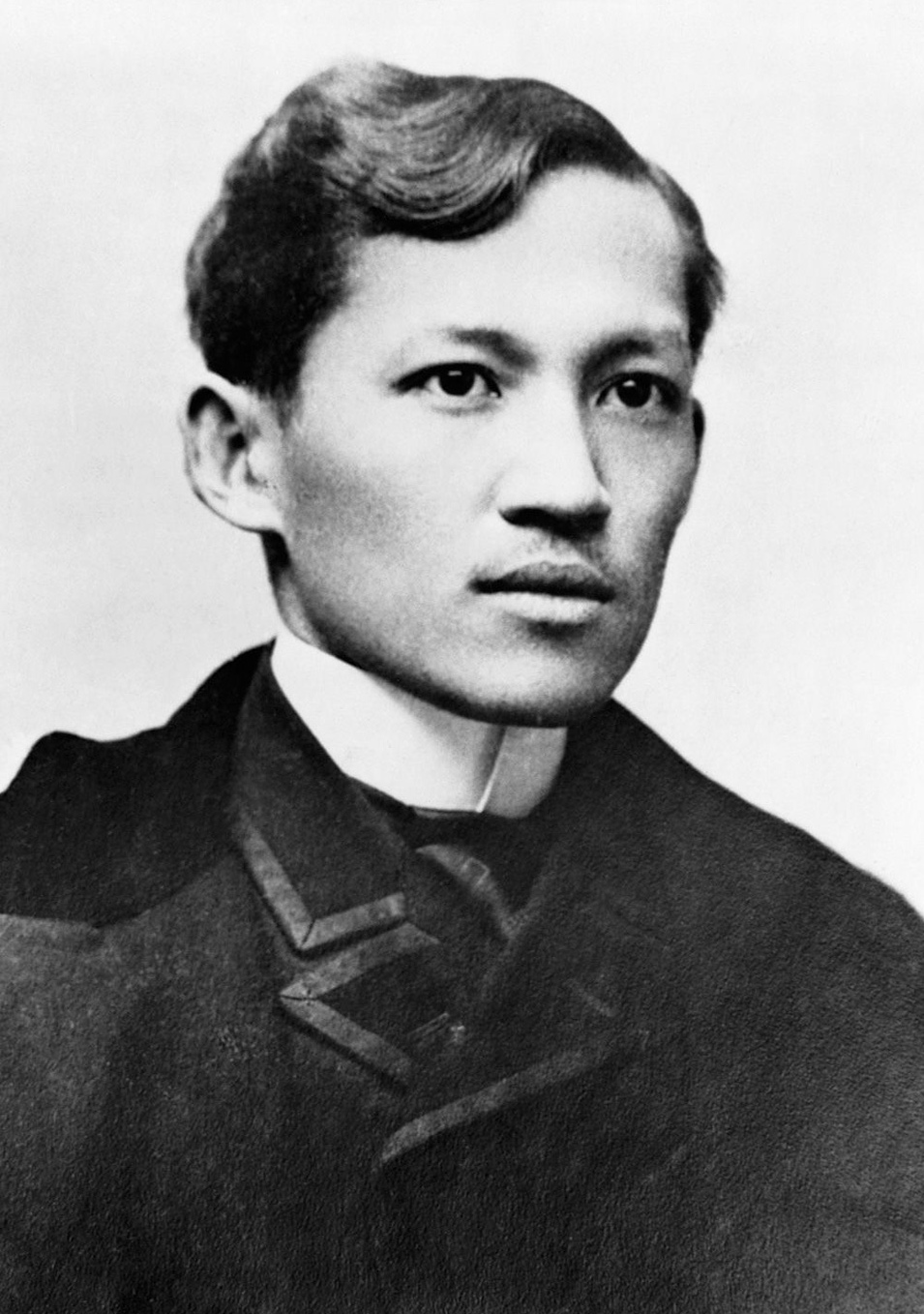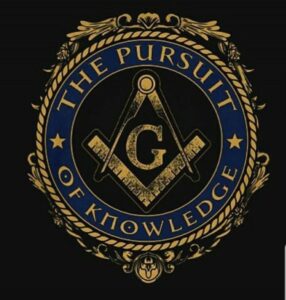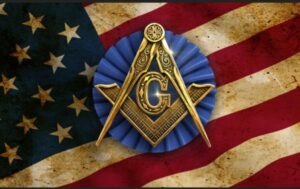Dr. José Protasio Rizal, Masonic Hero
JOSÉ PROTASIO RIZAL MERCADO Y ALONSO REALONDA
June 19, 1861, Calamra, Laguna, Captaincy General of the Philippines, Spanish Empire –
December 30, 1896, Bagumbayan, Manila, Captaincy General of the Philippines, Spanish Empire
Executed by a Spanish firing squad
National Hero (the “George Washington of the Philippines”),
Masonic Hero, Patriot, Martyr, Ophthalmologist, Writer and Polymath
José Rizal was the son of Francisco Rizal Mercado y Alejandro and Teodora Alonso Realonda y Quintos, comfortable, middle-class, educated parents, and the seventh of their eleven children. Like many Filipinos he was of mestizo origin (Chinese, Japanese, Spanish and Tagalog ancestry). When he entered the university, he shortened his name to José Protasio Rizal.
At a very young age Rizal proved himself to be very bright, reading and writing at age 5. He graduated from the University Ateno of Manila with distinction, then continued to obtain a surveyor and assessor’s degree and finished a degree of Philosophy in Pre-Law. Learning his mother was going blind, he enrolled in the Medial School of Santo Thomas, specializing in ophthalmology, graduating with distinction in medical and surgical pathology and obstretics. He continued his studies in Madrid earning a Licentiate in Medicine, studied ophthalmology at the University of Paris (1885) and earned a second doctorate at the University of Heidelberg. He was 25 when he finished his eye specialization in Heidelberg where he used the newly invented ophthalmoscope (1886). Concurrently, he finished his first novel, Noli Me Tángere (“Touch Me Not,” [ John 20:17], 1887).
In 1891 he published his second novel, El Filibusterismo (“The Subversives,” 1891). Both of his novels influenced two groups of Filipinos during the Spanish colonial period – peaceful reformists and armed revolutionaries. The novels criticized and condemned Spanish friars and the power of the Church, characters that were drawn from everyday life in the Philippines. These novels, published in Spain, soon made their way to Manila since Rizal sent copies to the Governor-General of the Philippines and the Archbishop. The authorities there quickly labeled him a subversive. The Governor-General, Emilio Terrero y Perinat, a 33o Mason protected Rizal, but the Archbishop became his unrelenting enemy. Rizal felt he could be more persuasive in the Philippines, and against the advice of friends, he returned to Manila on August 5, 1887. Almost immediately, the Archbishop put pressure on the Governor-General to ban Rizal’s books which circulated wildly in the capital. The church authorities quickly published a condemnation of his works, and in doing so, sales of his books skyrocketed. The Archbishop put more pressure on Governor-General Terrero to arrest Rizal, and fearing Terrero could not longer protect him, Terrero advised Rizal to leave the Philippines. He placed himself in self-exile in Hong Kong where he had a lucrative and extensive practice as an ophthalmologist. One of his patients was Leonor Rivera, a distant cousin, with whom he had an eight year, chaste relationship via correspondence. It is thought she was his inspiration for the character of Maria Clara in Noli Me Tángere and El Filibusterismo. (She was 14 and he 16 when they first met, and the attraction was almost instantaneous.)
While in Hong Kong, a lodge for Filipinos was established in Manila, Nilad No. 44. The lodge made Rizal Honorable Venerable Master in absentia, and soon many Filipinos quickly became Masons. When Rizal returned to the Philippines a second time in 1892, Filipino Masonry was well established. The Masons honored Rizal upon his return which only angered the friars. He was arrested, deported to Dapitan (July 6, 1892), lodges were closed and many active Masons were deported. During this time, the religious authorities made reprisals against the Rizal family, including the arrest of his mother.

When Rizal returned to the Philippines in 1887, his father told him not to see Rivera since it would endanger her family. Nevertheless, he asked his father permission to marry her, and he said no; Rizal and Rivera never met again. He left for his second trip to Europe and he continued to write to her, but she never responded. Rivera eventually married Henry Kippling, an English railway engineer, whom her mother preferred. Rizal was devastated.
Rizal’s German friend, Dr. Adolf Bernhard Meyer, described Rizal’s abilities as “stupendous.” Rizal was a true polymath, excelling in painting, sketching, sculpture, poetry, essays, novels, conversant in 22 languages and dabbled with some expertise in architecture, cartography, economics ethnology, anthropology, sociology, martial arts, fencing and pistol shooting.
Rizal is one of the few Filipinos of the 19th century who is well documented because of his prolific writings. Many Rizal scholars often face challenges since he would often switch from one language to another. His diaries also give light to his thoughts and travels in Europe, Japan, the United States, and his self-imposed exile in Hong Kong.
While in Europe during his second stay, Rizal was arrested by the German police because they suspected him of being a French spy after publishing Dimanche des Rameaux (Palm Sunday), which discussed Palm Sunday in socio-political terms. (“… all those flowers, those olive branches, were not for Jesus alone; they were the songs of victory of the new law, they were the canticles celebrating the dignification of man, the liberty of man, the first mortal blow directed against despotism and slavery.”) Rizal’s good friend, Ferdinand Blumentritt, an Austro-Hungarian professor, warned Rizal that his writings, especially his two novels, would cause him to be prosecuted as an inciter of revolution. And as predicted, Rizal was tried by the Spanish military of the Philippines for rebellion, sedition and conspiracy, was convicted on all three charges, and executed because they believed his writings contributed to the Philippine Revolution of 1896, writings that centered on individual rights and freedom. Rizal noted the Philippines were battling “a double-faced Goliath” – corrupt friars and bad government. Rizal’s last words were those of Jesus Christ, consummatum est, “it is finished.” He was 35 years old when he was executed. (Rizal married his common-law wife, Marie Josephine Leopoldine Bracken, just before his execution. Her father was an Irish corporal in the British Army, stationed in Hong Kong, where she was born, and she and Rizal met.)
Rizal is thought to be the first Filipino revolutionary whose death was caused entirely by his writings. Through dissent and civil disobedience, he was successfully able to destroy Spain’s ethical entitlement to govern.
Rizal was secretly buried in the Pacò Cemetery of Manila in an unmarked grave. His sister, Narcisa, visited gravesites looking for fresh earth and found one with guards at the gate. She gave the caretaker a gift to mark the grave with RPJ, Rizal’s initials in reverse. During American rule in 1898 his body was exhumed and is now buried in the Rizal Monument in Manila. In his last letter to his family, Rizal wrote, “Treat your aged parents as you would wish to be treated… Love them greatly in memory of me… December 30, 1896.”

On his way to Madrid in 1882, Rizal’s ship docked in Naples where he saw many posters put up by Masons announcing the death of General Giuseppe Garibaldi (1807-1882, Italy’s hero of Italian unification and the creation of the Kingdom of Italy. He was raised to the Sublime Degree of Master Mason in Palermo, Italy, 1869, and he was a 33o Scottish Rite Mason.) According to the Filipino historian, Reynold Fajardo, “Rizal must have been impressed because he later wrote about what he saw in a letter to his parents and brothers. The letter marked the first time Rizal made a written mention of Masonry, but it would not be his last.” It is also possible his uncle, José Alonzo, a Mason, may have been a Masonic influence since Rizal lived with his uncle for part of his studies while living in Madrid. Alonzo was a Knight of the Order of Carlos III, and later King Amadeo, also a Mason, made him a Knight Commander of the Order of Isabel the Catholic. José Rizal became a Master Mason in 1884 at Acacia Lodge No. 9 in Madrid under the Gran Oriente de España while he was studying medicine. Historians believe he was 23 when he was raised. Fajardo continues to note, “In accordance with Masonic Practices then observed in Spain, Rizal selected a symbolic name by which he was to be known, “Dimasalang.” In 1889 he became a member of the all-Filipino Solidaridad Lodge No. 53 in Madrid. Before leaving Spain, the Gran Oriente de España made Rizal its Grand Representative with the authority to be its representative in France and Germany. (He never served, however, as a Worshipful Master in any lodge.) In 1891 he applied for admission to the Temple de L’Honneur et de L’Union in Paris, France. He truly deserves to be called an international Mason because he was a member of Masonic Lodges in Spain, Germany, France, and possibly England.
Several Masonic lodges are named after José Rizal: José Rizal Lodge No. 22 in Manila, Philippines; Dr. José Rizal (Calamba) Lodge, No. 270, Laguna, Philippines; Isagani Masonic Lodge No. 96, Luzon, Philippines, named after a character in Rizal’s novel, El Filibusterismo; José Rizal Lodge No. 1172, New York City, composed of natural-born Filipinos; and Gat José Rizal Lodge, Murietta, Southern California.
A special thank-you to Rose Friedman, wife of Jephtha Br. Bill Friedman, for recommending José Rizal as a Mason worthy of further study.
Fraternally yours,
Br. Richard Gentile
Jephtha Lodge No. 494

